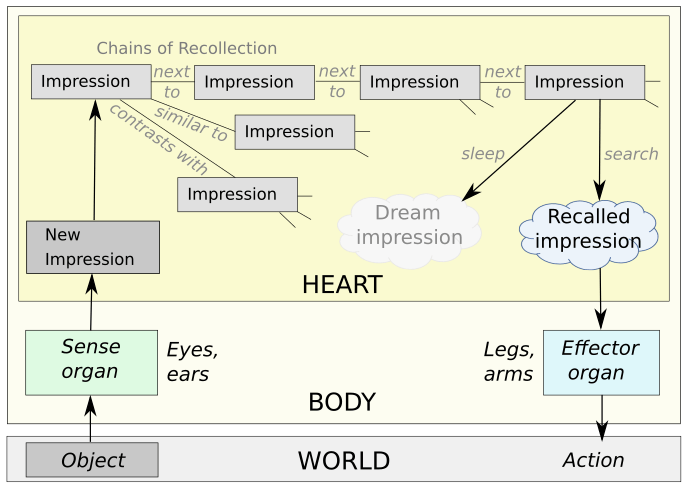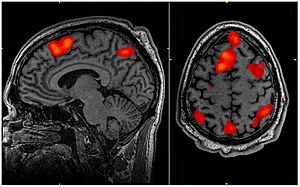Neuropsychology facts for kids
Neuropsychology is a field of science that studies how the brain works and how it affects our thoughts, feelings, and actions. Neuropsychologists look at how different parts of the brain control things like memory, attention, language, and problem-solving. They also study how brain injuries or illnesses can change these abilities.

Contents
What is Neuropsychology?
Neuropsychology is a special area of psychology that focuses on the brain. It explores the connection between the brain and behavior. This means understanding how the brain's structure (what it looks like) and its function (how it works) influence everything we do, think, and feel.
How Neuropsychologists Study the Brain
Neuropsychologists use many methods to learn about the brain. They might study people who have had brain injuries to see how different damaged areas affect their abilities. They also use advanced tools like fMRI scans, which show brain activity, or EEGs, which measure electrical signals in the brain.
Understanding Brain Functions
Neuropsychologists often study specific brain functions. For example, they might look at:
- Memory: How we learn, store, and recall information.
- Attention: How we focus on tasks and ignore distractions.
- Language: How we understand and use words.
- Problem-solving: How we figure out solutions to challenges.
- Emotions: How our brain processes feelings.
The History of Neuropsychology
People have been curious about the brain for a very long time. Early thinkers like Aristotle wondered how our senses, memory, and dreams worked. However, modern neuropsychology really began to grow in the 19th and 20th centuries.
Early Discoveries
In the 1800s, doctors started to notice that damage to specific parts of the brain caused certain problems. For example, they found that damage to a certain area could make it hard for someone to speak, even if they understood language. These discoveries helped scientists understand that different parts of the brain have different jobs.
Modern Neuropsychology
Today, neuropsychology is a very active field. Scientists continue to discover new things about the brain using advanced technology. They help people with brain injuries, learning difficulties, or conditions like Alzheimer's disease. They also work to understand how the brain develops and changes throughout life.
See also
 In Spanish: Neuropsicología para niños
In Spanish: Neuropsicología para niños
Images for kids
-
Thomas Willis was an English physician who made important contributions to the study of the brain.
 | Janet Taylor Pickett |
 | Synthia Saint James |
 | Howardena Pindell |
 | Faith Ringgold |




